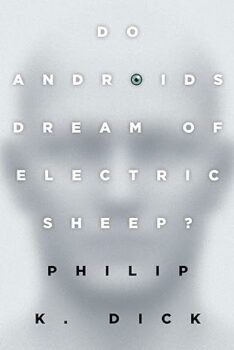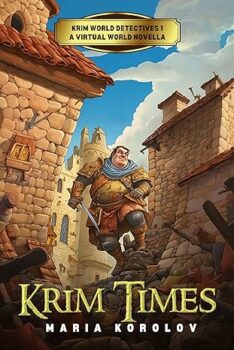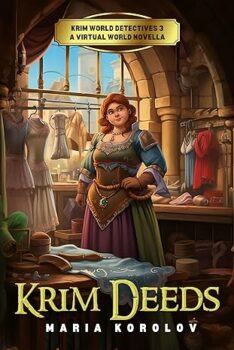I don’t personally agree with the dystopian visions of the metaverse as presented by sci-fi writers. But if you want to understand where the inspiration for platforms like Second Life — and OpenSim — comes from, these books are a must-read.
Plus, they might give us some tips about what to avoid as we move closer to a fully immersive future. I’ve also got one last bonus book on this list, at the bottom of this post. Not about the metaverse but a must-have sci-fi classic — and as relevant today as it ever was, if not more so.
Neuromancer by William Gibson
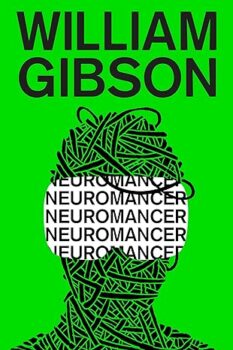 The paperback is normally $19 but it’s $9.50 today. The hard cover is also on sale, down from $28 to $21.
The paperback is normally $19 but it’s $9.50 today. The hard cover is also on sale, down from $28 to $21.
This book won all the sci-fi awards and helped create the cyberpunk genre — and paved the way for how we think about the universe.
It’s a bit of a dystopian vision of the future but one well worth revisiting, especially today, when that future seems to be coming ever closer.
From the publisher:
Winner of the Hugo, Nebula, and Philip K. Dick Awards, Neuromancer is a science fiction masterpiece—a classic that ranks as one of the twentieth century’s most potent visions of the future.
Neuromancer was the first fully-realized glimpse of humankind’s digital future—a shocking vision that has challenged our assumptions about technology and ourselves, reinvented the way we speak and think, and forever altered the landscape of our imaginations.
Snow Crash by Neal Stephenson
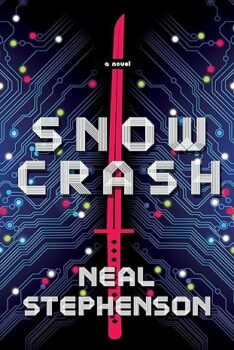 And speaking of dystopian metaverse futures, this book started it all. And, today, it’s 44% off — just $10.70 for the paperback. And the deluxe hardcover edition is also 44% off, down to $22.60.
And speaking of dystopian metaverse futures, this book started it all. And, today, it’s 44% off — just $10.70 for the paperback. And the deluxe hardcover edition is also 44% off, down to $22.60.
Myself, I prefer his book The Diamond Age. But that one, too, is on sale today — down 36% to $12.79.
But back to Snow Crash.
From the publisher:
Hiro lives in a Los Angeles where franchises line the freeway as far as the eye can see. The only relief from the sea of logos is within the autonomous city-states, where law-abiding citizens don’t dare leave their mansions.
Hiro delivers pizza to the mansions for a living, defending his pies from marauders when necessary with a matched set of samurai swords. His home is a shared 20 X 30 U-Stor-It. He spends most of his time goggled in to the Metaverse, where his avatar is legendary.
But in the club known as The Black Sun, his fellow hackers are being felled by a weird new drug called Snow Crash that reduces them to nothing more than a jittering cloud of bad digital karma (and IRL, a vegetative state).
Investigating the Infocalypse leads Hiro all the way back to the beginning of language itself, with roots in an ancient Sumerian priesthood. He’ll be joined by Y.T., a fearless teenaged skateboard courier. Together, they must race to stop a shadowy virtual villain hell-bent on world domination.
Ready Player One by Ernest Cline
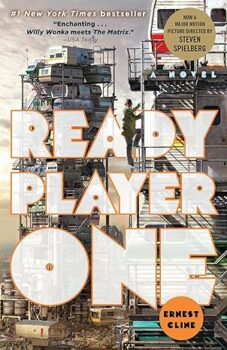 This paperback is 59% off, for a total price of just $7.35.
This paperback is 59% off, for a total price of just $7.35.
It’s an love poem to 1980s video games crossed with a Willy Wonka-style competition about who gets to run the metaverse.
I’ve got several beefs with this book — and others of the genre. First of all, a lot of stuff happens inside the game that shouldn’t. Just shut down the server, guys. Or terminate the user account.
Second, a scavenger hunt is a very poor way indeed to do corporate succession planning.
Finally, why does one poorly-run company dominate the metaverse? In the real world, competition pops up almost instantly. Yes, Google dominates the search engine space — for now, at least — but it certainly doesn’t have a monopoly on websites in general. And Second Life might be a big elephant in the social gaming area, but it’s got a lot of competitors — both big commercial players like Robox and Minecraft and all the MMOs and all the VR chat games, and open source stuff like OpenSim.
If you read this book, and the other cyberpunk novels on this list, treat them the way they were intended — as cautionary tales — and not as how-to manuals! Please!
Ender’s Game by Orson Scott Card
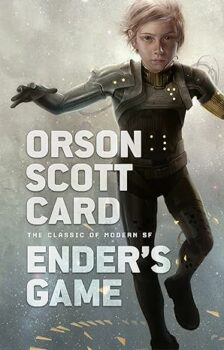 Another classic of my childhood, and that of many other people. It isn’t set so much in a virtual world, but in an immersive game. But how real is that game, exactly?
Another classic of my childhood, and that of many other people. It isn’t set so much in a virtual world, but in an immersive game. But how real is that game, exactly?
Now the hardcover edition is available for just $10.49, down from $15.99.
From the publisher:
From New York Times bestselling author Orson Scott Card, Ender’s Game―adapted to film in 2013 starring Asa Butterfield and Harrison Ford―is the classic Hugo and Nebula award-winning science fiction novel of a young boy’s recruitment into the midst of an interstellar war.
In order to develop a secure defense against a hostile alien race’s next attack, government agencies breed child geniuses and train them as soldiers.
A brilliant young boy, Andrew “Ender” Wiggin lives with his kind but distant parents, his sadistic brother Peter, and the person he loves more than anyone else, his sister Valentine. Peter and Valentine were candidates for the soldier-training program but didn’t make the cut―young Ender is the Wiggin drafted to the orbiting Battle School for rigorous military training.
Ender’s skills make him a leader in school and respected in the Battle Room, where children play at mock battles in zero gravity. Yet growing up in an artificial community of young soldiers Ender suffers greatly from isolation, rivalry from his peers, pressure from the adult teachers, and an unsettling fear of the alien invaders.
This is the first book of the six-book Ender Sextet series. The other books are all on sale today as well, as is Ender’s Shadow, the first of five books in the Shadow Saga series.
Do Androids Dream of Electric Sheep? by Philip K. Dick
This one isn’t so a book about the metaverse specifically — it’s more about AI. Which, these days, is increasingly becoming a closely intertwined topic as AI is used to build the worlds, script interactions, and animate in-world characters.
And, as I watched the OpenAI and Google AI announcements this week, I could see that their chatbots are getting pretty darn realistic.
Philip K. Dick predicted all this back in 1968. That was before I was born. That was before the moon landing. Lyndon B. Johnson was still president and the Beatles were still together. Philip K. Dick predicted a lot of weird things. He was a pretty weird writer. I’m constantly surprised by how many of his stories got made into big-budget films.
Have you read these books? Do you own them?
Oh, and I almost forgot — I’ve also written books about the metaverse, though not quite as dystopian as these.
And they’re not just on sale — they’re free. I’ve written over a dozen more in the same universe, which I’ll be publishing soon, so this is your chance to catch up on the story so far.


